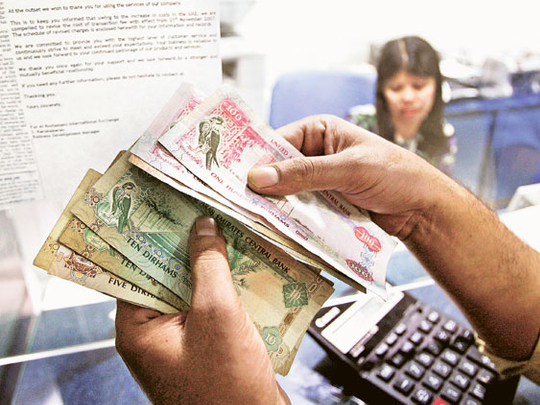
Dubai: After going through a sluggish first quarter, the Gulf bond market is witnessing a flurry of activity with more regional entities tapping the international debt capital markets.
After two successful issues from Sharjah Islamic Bank and Islamic Development Bank (IDB) with significant investor interest, more issuers including Saudi Electricity and Qatar Islamic Bank are lining up bond issues.
While Emirates airline kicked off a roadshow for its upcoming bond issue in Hong Kong on Monday, Abu Dhabi Government owned investment company Aabar has issued €1.25 billion (Dh6.45 billion) in bonds.
HSBC Middle East said on Tuesday that it plans to sell dollar-denominated Islamic bonds after meeting investors in Asia, Europe and the Middle East. The bank has mandated HSBC as the sole lead manager and bookrunner for the benchmark-sized bond.
Head to the market
"There is significant demand out there for regional papers, and credit spreads have been tightening and that is encouraging issuers to go to the market," said Abdul Qader Hussain, Chief Executive of mashreq Capital during a panel discussion on ‘Middle East risk perspectives' organised by Standard & Poor's in Dubai on Tuesday.
Sharjah Islamic Bank's $400 million (Dh1.4 billion) sukuk sale attracted nine times as much in bids, signalling investor appetite for Sharia-compliant bond issues from the region.
Bankers said the tight pricing of the issue around 270 points above the London inter-bank offered rate (Libor) is seen as sign of a big recovery in the market. IDB's $750 million issue was priced 35 basis points above Libor.
"The SIB issue has been aggressively priced at tight spreads and low yields. This gives some indication about the market's appetite for similar issues and the price band the investors are willing to take," said Ahmad Talhaoui, head of Asset Management at Royal Capital.
Analysts said yesterday that the safe haven status that some GCC countries such as Qatar, the UAE and Saudi Arabia acquired in the wake of the regional political turmoil and successful debt restructurings in the UAE including that of state-owned Dubai World are boosting investor confidence.
The relatively low number of debt issues from the region also has helped to boost demand. Bond sales in the Gulf dropped to $964 million this year from $2.3 billion in the same period in 2010, according to data compiled by Bloomberg.
Washington headquartered Institute of International Finance (IIF), an association of more than 430 global financial services firms, said in a recent assessment that the UAE and Qatar have improved their international credit standing and it is an opportune time for government entities and corporates to raise money through bond issues.
"These two countries have reinforced their status as politically and financially stable and that is clearly reflected in the tightening credit spreads amidst the regional political unrest," said Garbis Iradian, Deputy Director of IIF for Africa and Middle East.
Abu Dhabi's and Qatar's credit default swaps (CDS or cost of insuring debt) spreads remain the lowest among all Arab countries, and well below the average for other emerging economies.
Dubai CDS witnessed significant improvement from 415 bps at end-2010 to the 360-370 range in the same period.
Best performer
Dubai debt has been one of the best performers in emerging market debt this year. However analysts said they are cautious regarding the fundamentals. "We are cautious chasing the rally at these levels given the potential persistence of a funding gap to service still high overall debt," said Turker Hamzaoglu, an economist with Bank of America Merrill Lynch.












